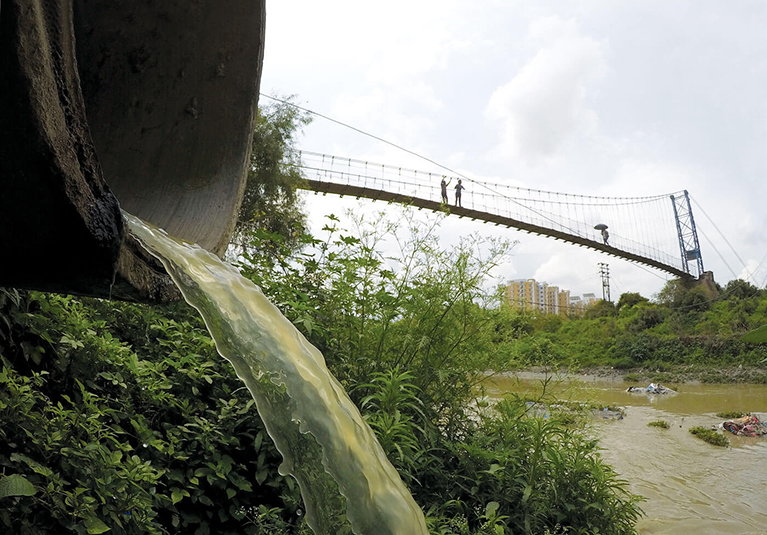After a cholera epidemic swept Jajarkot in 2010 killing 300 people, mostly children, the government was jolted to action. With help from UNICEF, it launched a campaign to make all of Nepal’s districts open defecation-free. The drive has saved many thousands of lives.
A toilet is no longer just a place to relieve oneself, it has become a health facility. At the end of another National Sanitation Week, three more districts including Lalitpur have been declared open-defecation free. Nearly 97% of Nepali households now have latrines.
The campaign has shortcomings: many toilets are poorly maintained and lack water supply. However, Siddhi Shrestha of UNICEF says, “Nepal’s progress in sanitation is a global success story. It changed the mindset of people, a toilet at home became a matter of pride, more than just infrastructure.”

RAW FOOTAGE: A drainage pipe emptying raw sewage into the Manohara River in Kathmandu on Thursday morning. Swollen with overnight rain, the river carried human excreta, dead animals, plastic bottles, and other refuse just upstream from its confluence with the Bagmati.
Pic: Bikram Rai
The health outcome has been dramatic. In 2011, nearly 7,000 children in Nepal died of diarrhoeal dehydration, and it was the third biggest killer of children under five. By last year, that figure dropped to less than 1,000.
But Bhusan Tuladhar of UN-Habitat has a word of caution: “While we celebrate Nepal’s success we now need to also work on managing what has accumulated in the toilets.”
Indeed, pit latrines and urban sewage have now become serious health hazards across Nepal.
Kathmandu is one of 22 remaining districts still not open defecation-free. The capital’s breakneck and haphazard growth has poisoned its rivers and turned the air toxic – making the city a symbol of governance failure. There are token cleanups and slogans, but no political will to address the crisis. Smart cities are those which treat and recycle their waste. Kathmandu is not a smart city, it has become ugly and dangerous for its inhabitants.
Nepal urgently needs sewage treatment plants, and a mechanism for the removal, recycling, and disposal of fecal sludge. In the absence of government initiatives, private entrepreneurs across the country are stepping in to set up collection services, and produce biogas and fertilizer from waste.
Says Bipin Dangol of the Environment and Public Health Organisation (ENPHO): “It is time to think beyond toilets. Unless human excreta is safely disposed of, we will continue to face health risks.”
Source: Nepali Times





